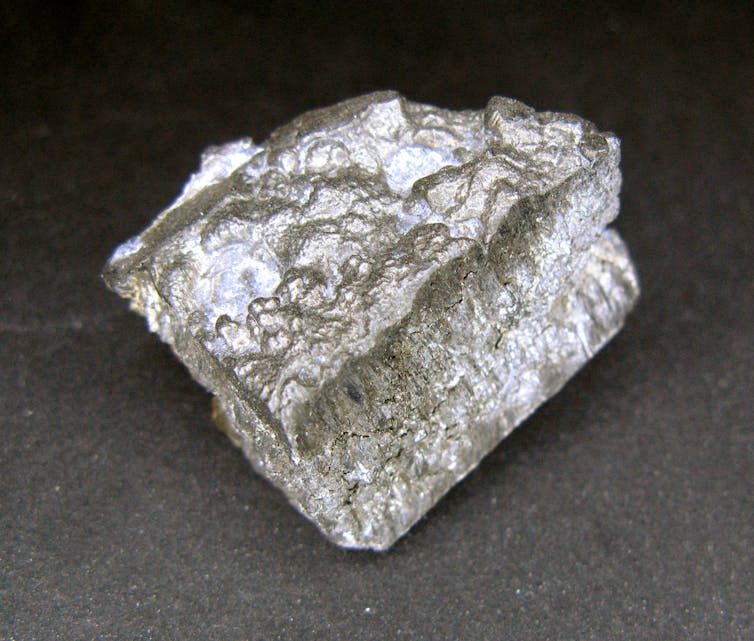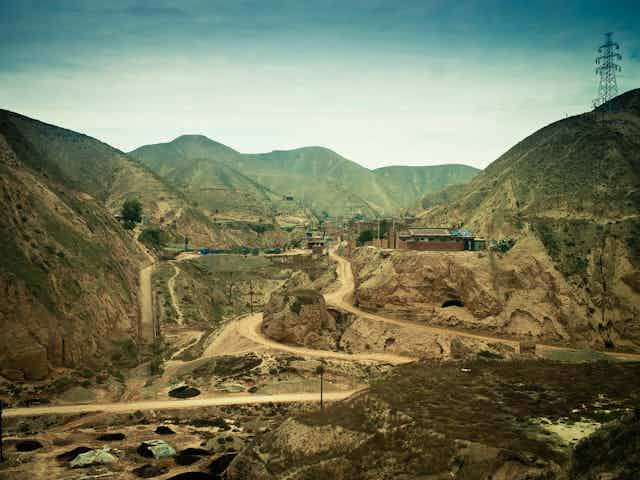Environmental pollution is currently a white-hot topic in China, but what if western consumers are driving the issue?
A storm of activity recently occurred on Sina Weibo, triggered by reports that industries have been pouring toxic effluents into illegal “disposal wells”, directly contaminating aquifers.
The Chinese activist Deng Fei gave this issue momentum by asking Chinese “netizens” to post photos of their local river over the Spring Festival holidays. Many were filled with rubbish, sickly-coloured water, or showed pollution being directly discharged into streams.
It was also reported in February that the Chinese government for the first time acknowledged the existence of “cancer villages”, where it is suspected that toxic pollution has lead to abnormally high cancer rates.
Dateline’s heart-wrenching documentary on the death of a child from exposure to hexavalent chromium is surely one of the most disturbing reports on the issue, and an international wake up call to look more seriously at its causes.
So where do we come in?
Part of the problem - and a part that is not currently widely discussed - is the Western world’s role in China’s environmental crisis.
It is easy for us to observe the problem from overseas and blame the Chinese political system. The government encouraged economic growth regardless of environmental cost. It failed to tackle corruption that led oversight of polluting industries. Yet we need to think more about how we have contributed to the problem.
We live in a global society, where our actions - like buying a smart phone - have global consequences.
During the 1990s and 2000s most of the world’s manufacturing was shifted to China. These operations have supplied many of the parts and goods sold by multinational companies, to predominantly western consumer markets.
The reason most often cited for this shift to China is cheap labour. However another, which is often tacitly acknowledged, is lack of environmental regulation. This has meant that costs associated with proper environmental protection - required if manufacturing occurred in the west - have not been built in to the price of goods.

At worst, a major part of China’s pollution crisis can be blamed on western owned multinationals deliberately exploiting lax environmental regulation.
At the very least, it is partly a result of these corporations buying cheap goods from Chinese suppliers, and not holding them to account for adverse impacts in the supply chain.
In 2011, Ma Jun’s Institute of Public and Environmental Affairs produced a report on the environmental and health impacts of the global electronics supply chain. This was critical in getting Apple to acknowledge their role in the problem and begin looking at potential solutions. More recently, Ma and a coalition of NGOs have published a similar report on impacts of apparel manufacture, and its massive water pollution footprint in China.
Are multinationals taking advantage of lax regulation?
A case study which may help to answer this is China’s Baotou rare earth element mining and processing region. It is well known that China is responsible for the production of over 90% of the world’s rare earth elements, required in the manufacture of smartphones, iPads and wind turbines. This is often reported in the context of geo-politics, and China’s “monopoly” on global rare elements.
A less publicised issue is the extreme health and environmental hazards associated with the mining and production of these elements. Rare earth elements processing creates large quantities of acidic waste water, toxic gases and radioactive tailings containing thorium, fluorine and ammonia. These wastes are difficult to dispose of safely, and have caused major health and environmental problems in Baotou and other areas.
Currently, a massive tailings dam over four kilometres long sits just outside Baotou city accumulating waste. These tailings continuously contaminate the surrounding groundwater. China’s iconic Yellow River – the largest water supply for the north - is being contaminated by this groundwater and direct discharge of waste water from unscrupulous rare elements operations.
Double standards
All indications suggest a western country would not be willing to locate the facilities within its borders, and deal with the environmental impacts.
Australia has substantial rare element deposits. However, the current major Australia processing operation involves a site in Malaysia. This controversial project by Lynas has sparked a major local environmental protest campaign led by Malay residents concerned about environmental and health impacts.
Australia, the US and other western countries are the major consumers of products requiring environmentally costly materials. Despite this we are unwilling to bear the environmental footprint, or the costs associated with safe production at home.
Now we must ask ourselves: are we willing to pay substantially more to buy a smart phone so that all steps of the production process are carried out in a safe and environmentally responsible manner?
Or, are we comfortable paying the current price, knowing that it contributes to cancer and environmental degradation somewhere else in the world?

